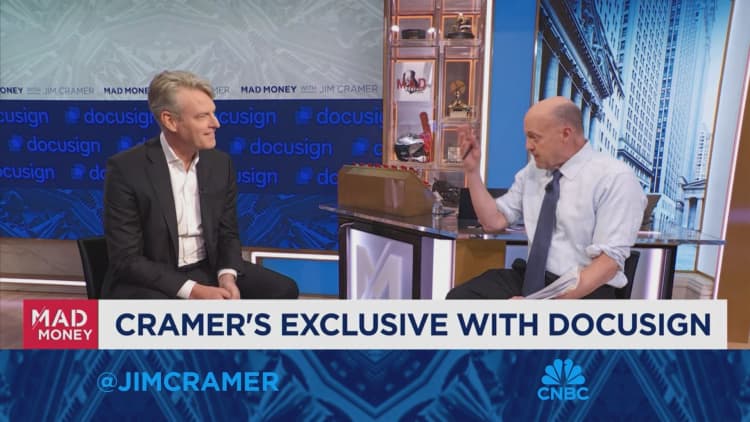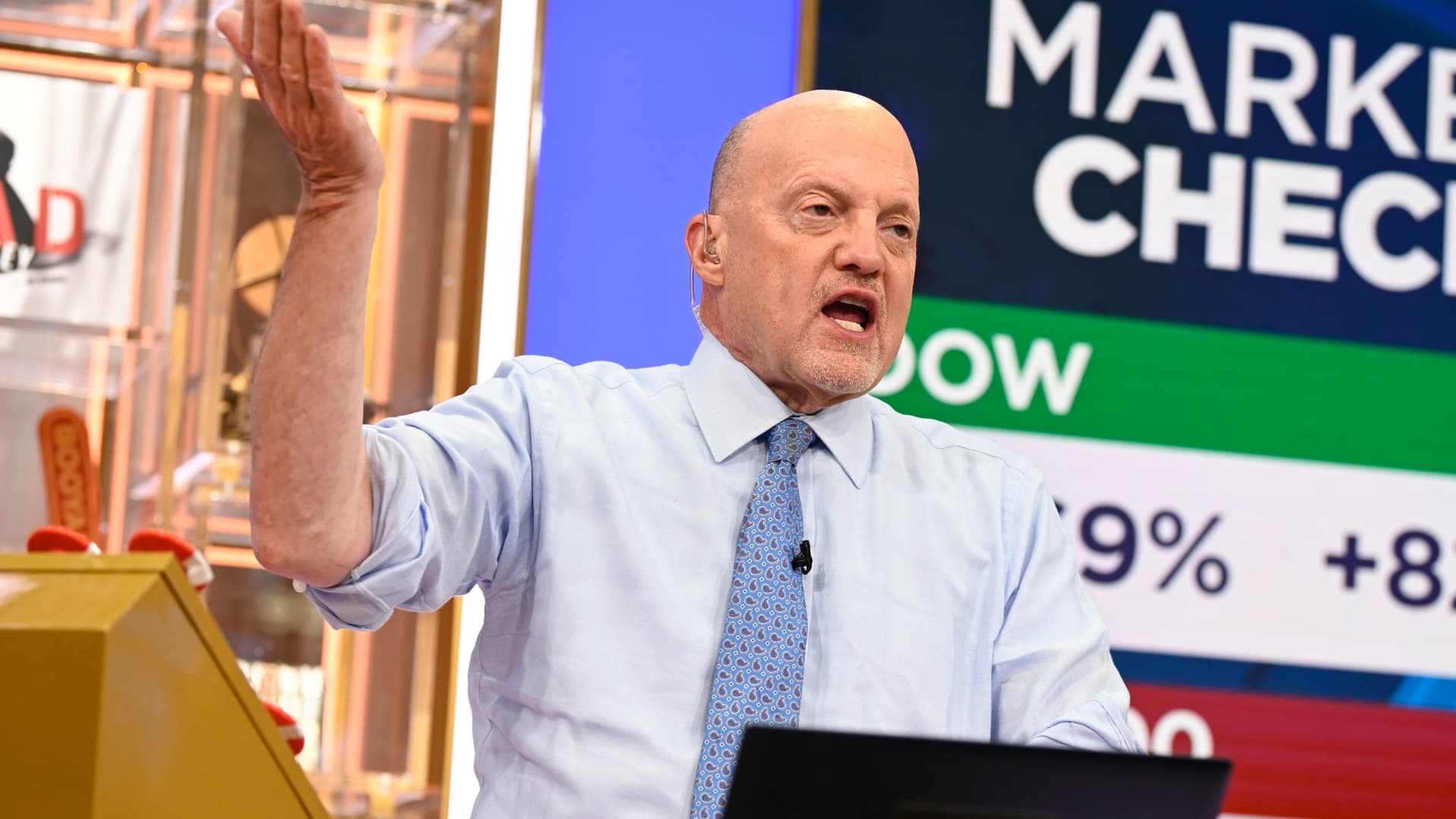

The DocuSign website is seen on a laptop in Dobbs Ferry, New York, April 1, 2021.
Tiffany Hagler-Geard | Bloomberg | Getty Images
Contract management platform DocuSign is committed to remaining a public company and is working to convince investors of its artificial intelligence potential, CEO Allan Thygesen told CNBC, after reports suggested the firm had been the target of takeover interest from private equity suitors.
“We’re focused on building a great, independent public company,” Thygesen told CNBC in an interview earlier this week at a partner event the company held in London. “I joined DocuSign as a public company, it’s a very exciting time right now, so that’s our plan.”
DocuSign, which offers a popular service that allows users to sign contracts digitally, was rumored to have been circled by suitors Bain Capital and Hellman & Friedman, according to reports from Reuters and Bloomberg earlier this year citing people familiar with the matter.
Reuters and Bloomberg both reported the PE firms were dueling to buy DocuSign for almost $13 billion. According to a February Reuters report, Bain Capital and Hellman & Freshman paused their pursuit of DocuSign due to disagreements over how much they should pay to buy the firm.
CNBC has been unable to independently verify the reports.
Thygesen said he “can’t comment on anything that may or may not have happened in the past,” when asked by CNBC whether he could confirm rumors of PE buyers’ previous interest in DocuSign.
Bain Capital and Hellman & Friedman were unavailable for comment when contacted by CNBC.
Thygesen added DocuSign wouldn’t rule out the prospect of an M&A (merger and acquisition) transaction in the future, telling CNBC: “In the future if something comes up — of course, you can never close the door on any transaction.”
However, he stressed: “We’re very focused on building a great independent company. We feel we have a huge opportunity, so that’s what we’re doing.”
In February, DocuSign announced plans for a restructuring of the business that included a decision to lay off 6% of its global workforce, with the bulk of the redundancies affecting sales and marketing functions.
The firm said it expects to take a $28 million to $32 million hit due to the restructuring plan, consisting primarily of cash expenditures for employee transition, notice period and severance payments, as well as non-cash expenses related to vesting of share-based awards.
At the time, DocuSign said in a filing with the U.S. Securities and Exchange Commission it was taking these restructuring measures to “realize its multi-year growth aspirations as an independent public company.”
AI will have ‘profound’ impact
DocuSign has been trying to convince investors of an AI-driven future for the business, having made several notable announcements of products powered by the technology this year as well as a deal to buy Lexion, an AI-based contract management product, for $165 million in cash.
In addition, Thygesen has taken the company through an entire rebrand, changing its logo and refreshing the company brand.
He also announced a new DocuSign product focus called “Intelligent Agreement Management,” or IAM. IAM is a more automated version of DocuSign’s Contract Lifecycle Management (CLM) process, which encompasses the journey of a contract from pre-signature activities to post-signature management.

“I think we have mostly convinced investors that there’s adults in charge, they’re ahead of the plan, that we’ve stabilized things, and now they want to see how we do with this new stuff,” Thygesen said.
“So we’re going to go and do that and, if we do that, we have a very exciting opportunity for shareholders, for customers, for employees, for everyone,” he added.
Thygesen said he expects AI to have a “very profound” impact “across industries, across functions, across sizes.”
“I feel privileged to be part of that in a company that I think is particularly well-positioned to take advantage of that,” Thygesen said. But, he added, “Even if I wasn’t, I’d be looking for where this is going to impact the business, no matter what business I was running.”




